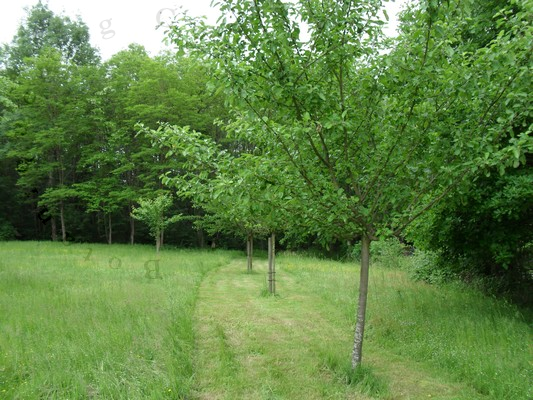
Differentiated management is a concept of maintenance of the green areas which currently develops. It makes it possible to recreate biological diversity in the pleasure gardens.
Differentiated management consists in carrying out a maintenance different according to the zones from the garden. For example, shearings in a garden of French style will be more frequent than in an English garden where to the extreme in a meadow. One of the management tools differentiated is thus a precise cartography of space: the various zones are defined according to their use, their ecology like according to their biological, current or potential richness. For each zone, the means and the frequencies of maintenance are defined. Unlike reasoned agriculture for which, also, maintenance and the treatments are weakest possible, there is no concept of production in a pleasure garden except if one says that a differentiated management makes it possible “to produce” biological diversity. Continue reading Management differentiated in the gardens →
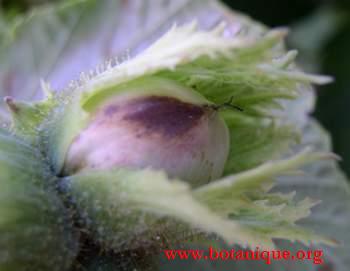
Plants produce oxygen by photosynthesis. By this same mechanism, plants transform mineral carbon into organic carbon usable by animals. Plants are autotrophic (self nourishing: producers) contrasting with the heterotrophic animals (consuming other living things: consumers). The plants are thus a paramount element of any food chain. 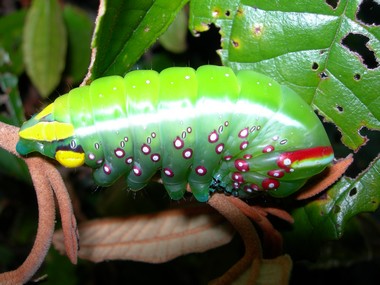 Plants allow many animal species to live: either as being their host, or as food. It is thus possible to design food chains without animals but there are none without plants. Plants also facilitate the penetration of water into the soil and limit the run-off of rainwater. They make it possible under more arid climates to fight desertification. Plants, thanks to their roots, stabilise soil. See: dune, stranding, defense and soil conservation, landscape restoration. Plants are also important for the fertilization of soils (humus).
Plants allow many animal species to live: either as being their host, or as food. It is thus possible to design food chains without animals but there are none without plants. Plants also facilitate the penetration of water into the soil and limit the run-off of rainwater. They make it possible under more arid climates to fight desertification. Plants, thanks to their roots, stabilise soil. See: dune, stranding, defense and soil conservation, landscape restoration. Plants are also important for the fertilization of soils (humus). 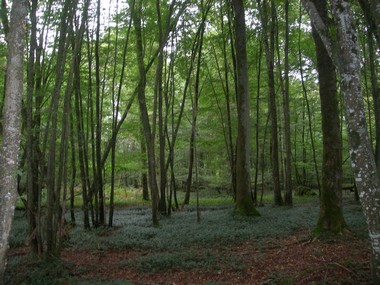 Plants are source of life for Mankind. For people, plants provide nourishment (food, condiment plants), protection (fuel wood, houses), amenity (furniture, materials), and medicine (medicinal plants). Crop plants are bred to maximise yield and are genetically rather uniform compared to wild relatives. Wild plants potentially offer the genes of resistance to the crop diseases. Relatively few plants have been exploited for medicines. The whole plant kingdom presents a potential reservoir of medicinal uses (substances, drugs…).
Plants are source of life for Mankind. For people, plants provide nourishment (food, condiment plants), protection (fuel wood, houses), amenity (furniture, materials), and medicine (medicinal plants). Crop plants are bred to maximise yield and are genetically rather uniform compared to wild relatives. Wild plants potentially offer the genes of resistance to the crop diseases. Relatively few plants have been exploited for medicines. The whole plant kingdom presents a potential reservoir of medicinal uses (substances, drugs…). 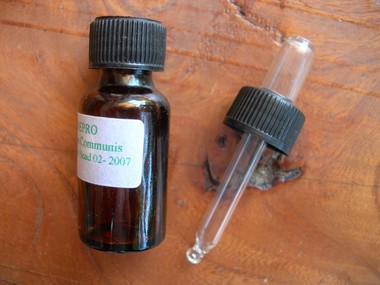 The vast genetic resources of the plant kingdom require conservation to protect biological diversity and secure the future of Mankind.
The vast genetic resources of the plant kingdom require conservation to protect biological diversity and secure the future of Mankind.
Botanical and biodiversity Window



 Plants allow many animal species to live: either as being their host, or as food. It is thus possible to design food chains without animals but there are none without plants. Plants also facilitate the penetration of water into the soil and limit the run-off of rainwater. They make it possible under more arid climates to fight desertification. Plants, thanks to their roots, stabilise soil. See: dune, stranding, defense and soil conservation, landscape restoration. Plants are also important for the fertilization of soils (humus).
Plants allow many animal species to live: either as being their host, or as food. It is thus possible to design food chains without animals but there are none without plants. Plants also facilitate the penetration of water into the soil and limit the run-off of rainwater. They make it possible under more arid climates to fight desertification. Plants, thanks to their roots, stabilise soil. See: dune, stranding, defense and soil conservation, landscape restoration. Plants are also important for the fertilization of soils (humus).  Plants are source of life for Mankind. For people, plants provide nourishment (food, condiment plants), protection (fuel wood, houses), amenity (furniture, materials), and medicine (medicinal plants). Crop plants are bred to maximise yield and are genetically rather uniform compared to wild relatives. Wild plants potentially offer the genes of resistance to the crop diseases. Relatively few plants have been exploited for medicines. The whole plant kingdom presents a potential reservoir of medicinal uses (substances, drugs…).
Plants are source of life for Mankind. For people, plants provide nourishment (food, condiment plants), protection (fuel wood, houses), amenity (furniture, materials), and medicine (medicinal plants). Crop plants are bred to maximise yield and are genetically rather uniform compared to wild relatives. Wild plants potentially offer the genes of resistance to the crop diseases. Relatively few plants have been exploited for medicines. The whole plant kingdom presents a potential reservoir of medicinal uses (substances, drugs…).  The vast genetic resources of the plant kingdom require conservation to protect biological diversity and secure the future of Mankind.
The vast genetic resources of the plant kingdom require conservation to protect biological diversity and secure the future of Mankind.